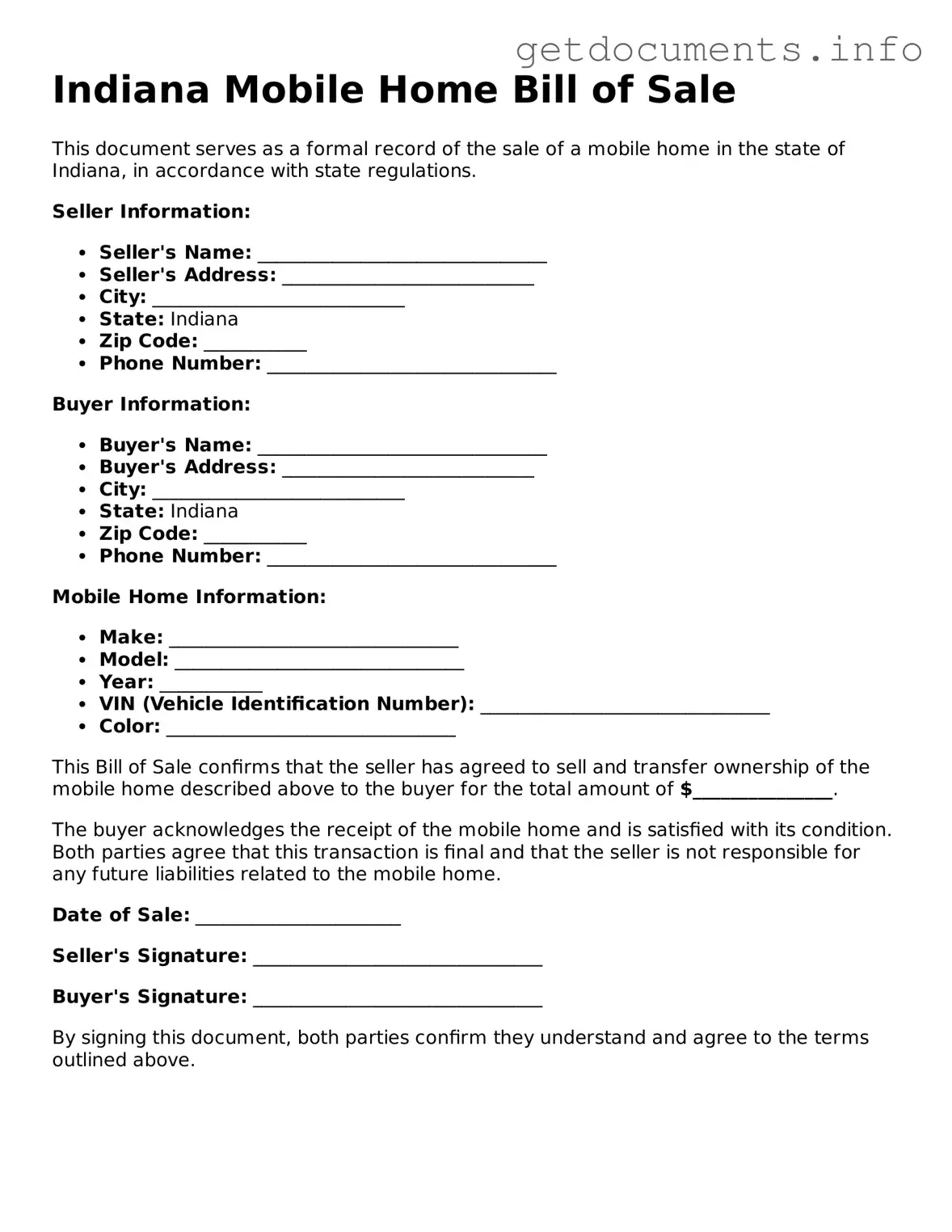Free Mobile Home Bill of Sale Template for Indiana
The Indiana Mobile Home Bill of Sale form is a legal document that records the sale of a mobile home between a seller and a buyer. This form serves as proof of ownership transfer and includes essential details about the transaction. To ensure a smooth sale, it’s important to fill out this form accurately.
Ready to get started? Fill out the form by clicking the button below.
Access Mobile Home Bill of Sale Editor

Free Mobile Home Bill of Sale Template for Indiana
Access Mobile Home Bill of Sale Editor
Got places to be? Complete the form fast
Fill out Mobile Home Bill of Sale online and avoid printing or scanning.
Access Mobile Home Bill of Sale Editor
or
⇩ PDF File
